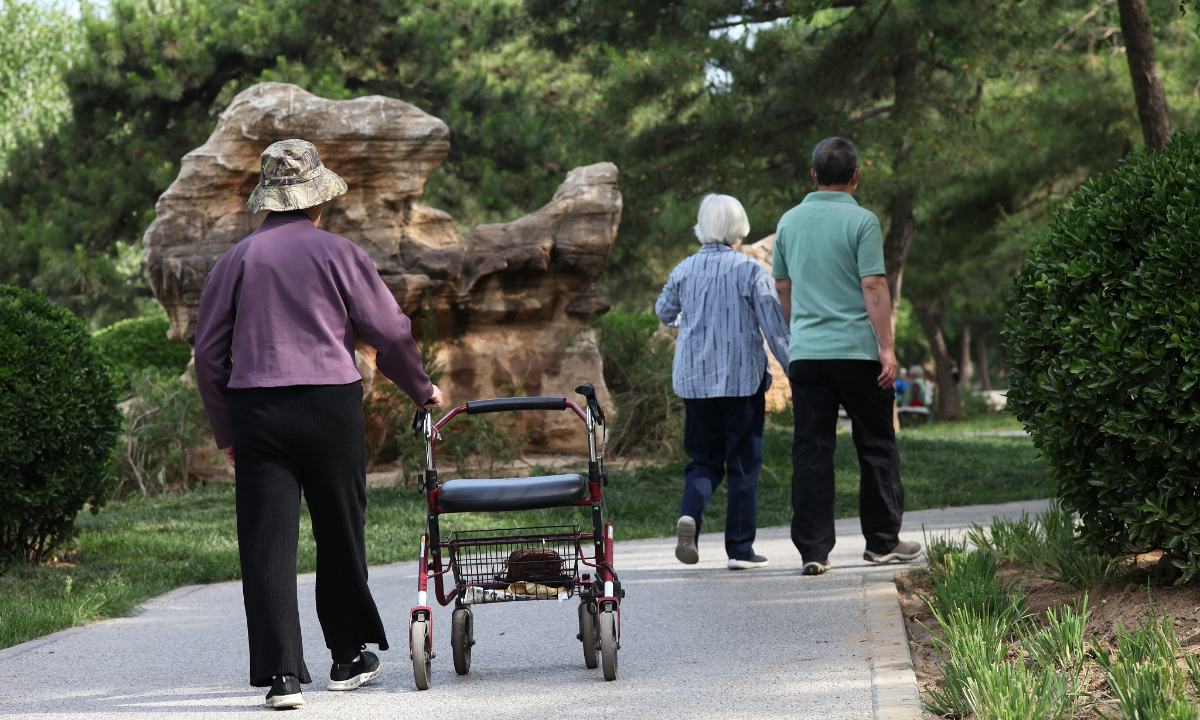China seeking ways to develop elderly care service industry: Ministry of Civil Affairs

File Photo:VCG
As the aging population continues to increase, China is committed to improving the social security system to address the funding issue for elderly care, as well as encouraging social capital to develop an elderly care service industry, so as to meet the diverse and multi-level needs of elderly care services, China's Ministry of Civil Affairs (MCA) said on Friday.
The remarks were made by Minister of Civil Affairs Lu Zhiyuan in an interview at the Great Hall of the People in Beijing on Friday, after the second plenary meeting of the second session of the 14th National People's Congress.
By the end of 2023, the number of people aged 60 and above in China reached 297 million, accounting for 21.1 percent of the total population, up from 280.04 million and 19.8 percent at the end of 2022. Lu said China has a large elderly population and the aging process is still increasing, so there is a significant task ahead to deal with it.
The MCA will actively implement the national strategy for addressing population aging by strengthening institutional innovation and policy support. Specifically, Lu said that China will continue to improve the social security system to address the funding issue for elderly care, and enhance the elderly care service system to work out who will provide elderly care services and what kind of services will be provided. The health support system will also be improved, to address the elderly's health care needs, he said.
The minister added that China will continue to improve the coordinated pattern of elderly care services in homes, communities, and institutions. "According to our research, most elderly people prefer to choose home-based care, which is also a traditional part of Chinese culture, so we need to meet this demand and provide services for home-based care," said Lu.
The minister said that elderly care institutions should provide home-based services, such as helping the elderly go to the bathroom or see a doctor, and establish a visiting and caring system for empty-nesters and elderly people living alone.
Communities should strengthen the construction of urban and rural community service networks as required in the government work report, such as developing embedded elderly care service institutions in communities by establishing elderly activity centers and canteens. "We should let the elderly enjoy convenient care services at their doorstep," Lu said.
Additionally, elderly care institutions should offer essential services for those who are unable to work, lack a source of income, or do not have anyone to provide them with support or care, as well as those with dementia or disabilities.
Lu also noted that social capital will be encouraged to develop the elderly care service industry to meet multi-level and diversified needs for elderly care services. "We should proactively create opportunities for the elderly to engage in society and help them discover happiness in their later years through fulfilling activities," he said.
Global Times
